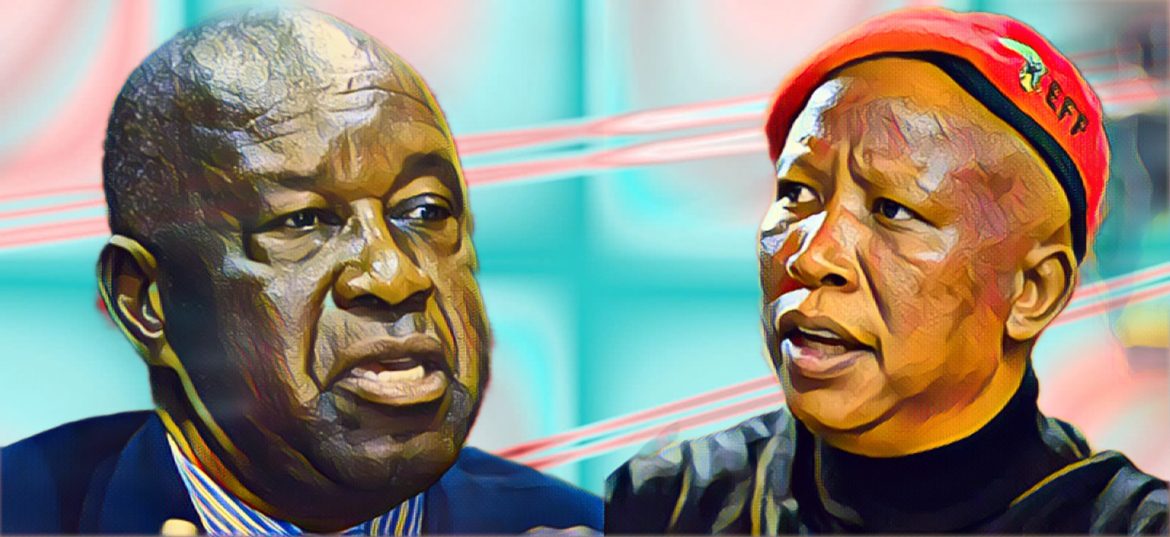Zimbabwe’s ruling party, ZANU-PF, has fired back at South African politician Julius Malema after his recent comments criticizing Zimbabwean leadership. The party’s sharp retort comes amid growing tensions between the two nations, with ZANU-PF accusing Malema of meddling in Zimbabwe’s internal affairs.
Malema, leader of South Africa’s Economic Freedom Fighters (EFF), has been a vocal critic of Zimbabwe’s political and economic situation. He recently called for stronger leadership in Zimbabwe, urging the country to address its ongoing challenges. His remarks, however, were not well received by ZANU-PF, which sees them as an unwarranted intrusion into the nation’s sovereignty.
In a strongly worded statement, ZANU-PF spokesperson Christopher Mutsvangwa criticized Malema for his comments, suggesting that he should focus on issues in South Africa rather than trying to influence Zimbabwean politics. “If Malema is so good at leading, then he should focus on South Africa and leave Zimbabwe to Zimbabweans,” Mutsvangwa said. “We do not need advice from those who do not understand our context or challenges.”
The exchange highlights the strained relations between ZANU-PF and Malema, who has previously called for international intervention in Zimbabwe. Malema’s criticisms have centered around issues such as human rights, economic mismanagement, and political repression, all of which he claims are stifling Zimbabwe’s development.
ZANU-PF’s response reflects a broader sentiment within the party that external criticism, especially from African counterparts, is both unwelcome and unnecessary. The party argues that Zimbabwe’s problems must be solved by Zimbabweans and that external voices only serve to complicate matters.
Malema, known for his outspoken and often controversial views, has a history of confronting African leaders whom he believes are failing their people. His stance on Zimbabwe has been consistent, calling for significant reforms and more robust governance. However, his approach has often been seen as abrasive, particularly by those within the leadership of the countries he critiques.
ZANU-PF’s response is not just about defending the party’s leadership but also about asserting Zimbabwe’s independence from foreign influence. The party has long maintained that Zimbabwe should be free from external meddling, particularly from those who, in their view, lack a comprehensive understanding of the country’s unique challenges.
This latest exchange is likely to further strain relations between Malema and ZANU-PF, though it is unlikely to deter the EFF leader from continuing his critique. Malema has previously shown that he is not afraid to speak out against what he perceives as injustices, regardless of the potential backlash.
In Zimbabwe, Malema’s comments have been met with mixed reactions. While some appreciate his candor and agree with his call for better governance, others believe that his involvement in Zimbabwean affairs is inappropriate. The debate reflects broader divisions within Zimbabwe about the best path forward for the country, especially as it continues to grapple with economic hardship and political uncertainty.
As the situation develops, it is clear that the tensions between Malema and ZANU-PF are emblematic of a larger discourse about leadership and accountability in Africa. While ZANU-PF seeks to maintain its sovereignty and reject external criticism, voices like Malema’s represent a growing trend of pan-African leaders holding each other to account, albeit in a manner that can be contentious.
For now, the focus remains on how these exchanges will influence the political landscape in Zimbabwe and whether they will have any lasting impact on the relationship between the two neighboring countries. The hope is that, despite the heated rhetoric, dialogue and mutual respect can prevail, leading to positive outcomes for both nations.
Source: New Zimbabwe


